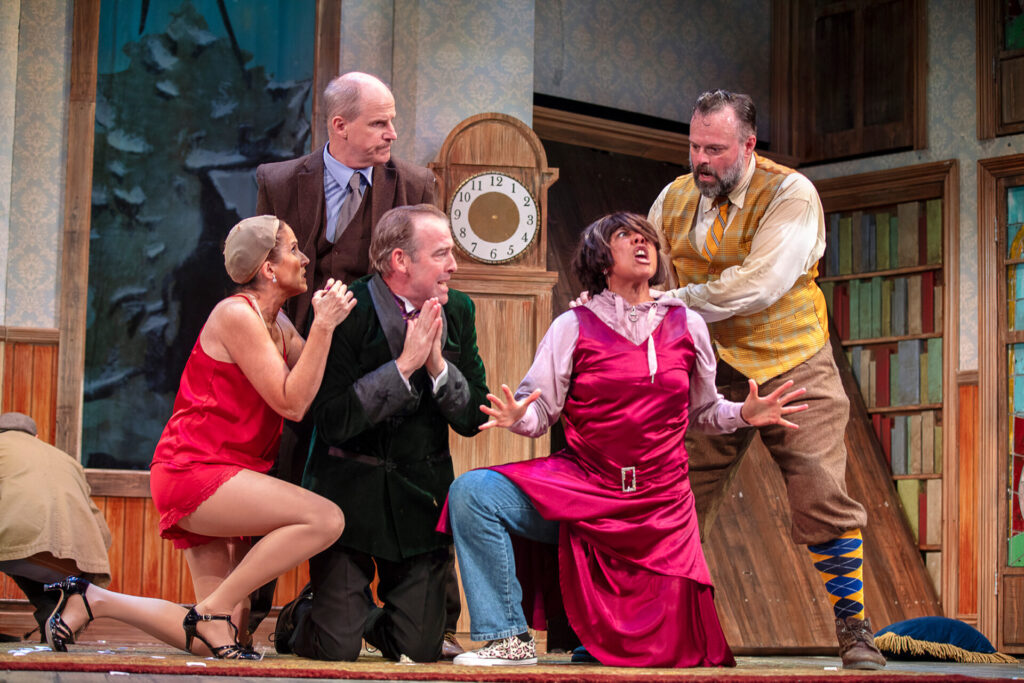The illustrious Hagen Quartet displayed tremendous nuclear energy March 7, 2024, on the stage of Richardson Auditorium in Princeton University. We music lovers have been doubly blessed by the Hagen Quartet. Not appearing locally for years, they have appeared in Philadelphia (see one of my previous reviews) and a week later in Princeton with a totally different program.
Joseph Haydn (1732-1809), Quartet in D Minor, Op. 76, No. 2 “Fifths” (1797), Claude Debussy (1862-1918), Quartet in G Minor, Op. 10 (1893), and Ludwig van Beethoven (1770-1827) Quartet No. 14 in C-sharp Minor, Op. 131 (1826).
HAGEN STRING QUARTET
Lukas Hagen, Violin; Rainer Schmidt, Violin; Veronika Hagen, Viola; and Clemens Hagen, Cello
Professor Lucy Caplan, the formidable Program Annotator, began her amazing essay with the trenchant sentence, “A palette of emotional intensity unites the three string quartets on this evening’s program.” That is an understatement. Rarely has an audience witnessed such formidable technique allied to a sensuality of sound, with precision and power. A miracle of the same magnitude as Europeans who first tasted pepper. Dramatically, all three works this night contained passages of outrageously beautiful pizzicato passages.
Haydn’s quartet embodied vivid, soulful sensations tempered by tremendous romantic energy as played here by the Hagen Quartet. There was never a dull moment as Lukas Hagen displayed fiery temperament and physicality as the leader. Like Bellerophon straddling Pegasus, Mr. Hagen brought an heroic aspect to this as well as the other quartets on the program. His deeply penetrating artistry seized the consciousness of the audience. Indeed, the four artists exuded tremendous Big String Energy throughout the entire night.
The Debussy was a rarity in these parts, and what a masterpiece of complexity it was under their playing. This was Debussy’s only string quartet, and it was apparent to us all that it is a masterpiece, especially when played so wonderfully as here.
Beethoven’s Opus 131 is an acknowledged masterpiece. As professor Caplan wrote, Igor Stravinski called it “perfect, inevitable, inalterable.” According to Dr. Caplan, Beethoven reputedly considered it to be his finest work. Beethoven’s Opus 131 inspires the listener with awe, ecstasy, and lyrical elegance tempered with thrilling pauses, and leaps of the imagination. As early as the Allegro Moderato, the lady seated to my left began furiously fanning herself with her program, not unlike an overly hysterical actress performing a doomed heroine in a Tennessee Williams play. Truly, Beethoven was assaulting her sanity with sensual overload. Like Semele, she was exposed to Lukas Hagen’s full artistic splendor as he straddled his piano bench, playing with godly abandon in concert with his three geniuses. She continued fanning herself, and wiping ringlets of her hair from her face until the very end. Meanwhile, the lady to my right was ever so slowly, imperceptibly for a while, slipping on her coat during the piece, timing her placing her scarf around her neck to the crescendos. She, perhaps, feared that her clothes would vanish in the incandescent moment, and tried to prevent her nudity. Added to this business was a viola string flying in the air as Veronika Hagen passionately engaged in the Beethoven.
Audience acclaim for the Hagen Quartet was vibrant and well deserved. Return soon, beguiling Hagen Quartet.








